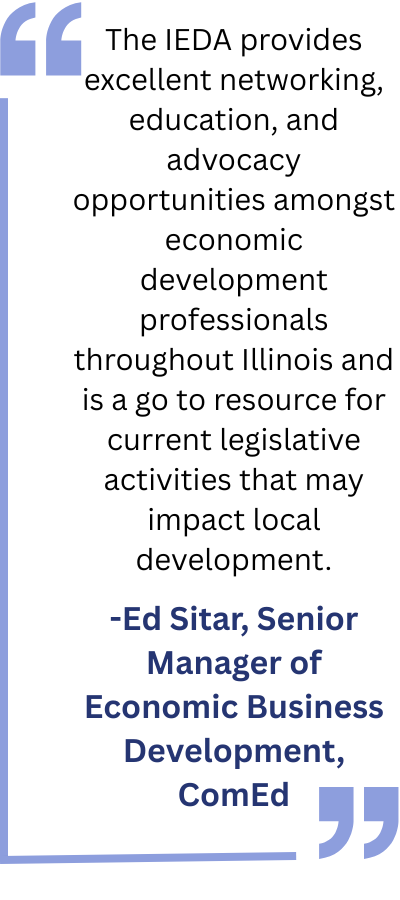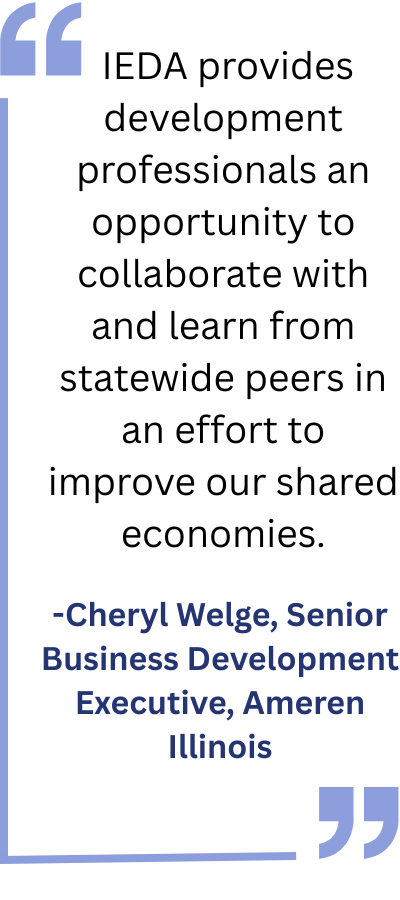|
STATE OF ILLINOIS - COVID-19 RESPONSE
- Gov. Pritker’s daily updates at 2:30: Watch live or Listen to audio-only.
- Per Gov. Pritzker’s Executive Order, official guidance on what is “essential business.”
- All current state updates can be found here.
- Has Your Business Been Impacted By COVID-19? Illinois DCEO is seeking information from businesses on how they have been impacted by this crisis so that it can develop resources and response. They have created a short survey here.
Coronavirus Aid, Relief, and Economic Security (CARES Act)
Small Business Owners Guide to the CARES ACT PDF from US Senate Committee
The programs and initiatives in the Coronavirus Aid, Relief, and Economic Security (CARES) Act that was just passed by Congress are intended to assist business owners with whatever needs they have right now. When implemented, there will be many new resources available for small businesses, as well as certain nonprofits and other employers. This guide provides information about the major programs and initiatives that will soon be available from the Small Business Administration (SBA) to address these needs, as well as some additional tax provisions that are outside the scope of SBA.
Struggling to get started? The following questions might help point you in the right direction from the Guide. Do you need:
- Capital to cover the cost of retaining employees? Paycheck Protection Program might be right for you. (p2)
- A quick infusion of a smaller amount of cash to cover you right now? Emergency Economic Injury Grant. (p7)
- To ease fears about keeping up with payments on your current or potential SBA loan? The Small Business Debt Relief Program. (p6)
- Just some quality, free counseling to help you navigate this uncertain economic time? Resource Partners. (p9)
Navigate the Guide's table of contents if you know what resources you are looking for to direct you to the program or assistance product you may need:
- Paycheck Protection Program Loans (p2)
- Small Business Debt Relief Program (p6)
- Economic Injury Disaster Loans and Emergency Economic Injury Grants (p7)
- Small Business Counseling (p9)
- Small Business Contracting (p10)
- Small Business Tax Provisions (p11)
SMALL BUSINESS ADMINISTRATION
Sign up for Updates from the Small Business Administration
SBA Economic Injury Disaster Loan (EIDL) Assistance
All Illinois small businesses (according to SBA’s size standards) and private non-profits can now apply for loans of up to $2 million. These loans are made directly by SBA, not banks. If your businesses have been affected by the coronavirus pandemic, this program offers working capital to meet needs including payroll, accounts payable, and fixed debt payments until the situation improves. Interest rates are 3.75% for small businesses and 2.75% for non-profits. Your businesses may apply now at SBA: Disaster Assistance.
Highlights From Bradley University SBDC - Last Updated March 19, 2020
- As of March 19, 2020, the SBA approved Governor Pritzker’s request to declare all counties in Illinois as declared disasters and companies are now able to apply for the SBA disaster loans.
- The SBA Economic Injury Disaster Loan (EIDL) is a loan, not a grant. However, it comes with a low interest rate of 3.75% for businesses, and 2.75% for private non-profits. And the payback period can be as long as 30 years. There is also a four-month grace period after the loan is approved before the first payment is due. Businesses should also consult their accountant, banker, or lawyer for additional guidance as to the suitability of this loan program for your circumstances.
- Loan requests are made directly by individuals (sole proprietors) and businesses. Banks do not accept EIDL applications. Loan proceeds are paid directly to the applicant’s bank account.
- The loan amount may be up to $2,000,000. There is no fee to apply. Approved applications do not have to use all the approved loan amount and application approvals may be placed on hold for up to six months.
- Only small businesses are eligible as determined by your industry’s NAICS code and SBA guidelines. However, for most businesses, less than 500 employees would qualify. If needed, our advisors can confirm if your business qualifies.
- Approvals are partly based on the demonstrated ability to repay the loan as evidenced through financial history and projections, along with credit scores. However, a low credit score does not preclude approval. Collateral will be required for loan amounts above $25,000 with real estate as the preferred collateral.
- The goal of this loan program is to provide the working capital you need to get through depressed economic conditions. This includes expenses such as rent, payroll, and other operational expenses.
Hospitality Emergency Grant Program (DEADLINE: APRIL 1)
To help hospitality businesses make ends meet in the midst of the COVID-19 pandemic, DCEO is launching the Hospitality Emergency Grant Program with $14 million drawn from funds originally budgeted for job training, tourism promotion, and other purposes. Grant funds are available to support working capital like payroll and rent, as well as job training, retraining, and technology to support shifts in operations, like increased pick-up and delivery. Bars and restaurants that generated between $500K and $1M in revenue in 2019 are eligible for up to $25,000, and bars and restaurants that generated less than $500K in revenue in 2019 are eligible for up to $10,000. Hotels that generated less than $8M in revenue in 2019 are eligible for up to $50,000.
- Applications for awards will be accepted until 5:00pm on April 1st, and winners will be chosen via a lottery.
- More information here.
- Application: [English] [Spanish]
Illinois Small Business Emergency Loan Fund
DCEO and the Illinois Department of Financial and Professional Regulation (IDFPR) are establishing the Illinois Small Business Emergency Loan Fund to offer small businesses low interest loans of up to $50,000. Businesses located outside of the City of Chicago with fewer than 50 workers and less than $3 million in revenue in 2019 will be eligible to apply. Successful applicants will owe nothing for six months and will then begin making fixed payments at a below market interest rate for the remainder of a five-year loan term.
Childcare Resources
From Ready Nation: Like schools, most child care programs have been asked to close. But many emergency and essential workers continue to need reliable care for their kids. Thus, the state is in the process of establishing a series of “emergency child care” options – settings that could operate under more flexible-than-usual rules, while still offering kids and families crucial assistance. Existing, interested providers could apply to re-open in this process; other, new providers could explore options for starting-up. See below for more information:
- How to find emergency child care – Call 888-228-1146 or visit here.
- General guidance on establishing emergency-care options, including rules, a license application, list of essential workers, and background-check authorization – click here.
- Related FAQ, including info on the closure of normal child care operations – click here.
Reminder: Families First Act Goes Into Effect April 1
The Families First Act grant emergency paid sick leave to employees of businesses with fewer than 500 employees and expands family and medical leave. It takes effect on April 1, 2020. The US Department of Labor has an FAQ here.
Small Business Development Centers (SBDC)
Your local SBDC provides one-on-one assistance, education, and research to assist small business owners and entrepreneurs who want to start, grow, or accelerate a business. Business advisors are on the front lines when businesses are impacted by any kind of disruption from tornadoes to pandemics. Most SBDC’s are fully operational and ready to assist businesses during these challenging economic conditions.
You may visit this website to find your local Illinois Small Business Development Center (SBDC). If you are located outside of Illinois, please visit this website to find your state’s SBDC network.
OTHER RESOURCES
|




